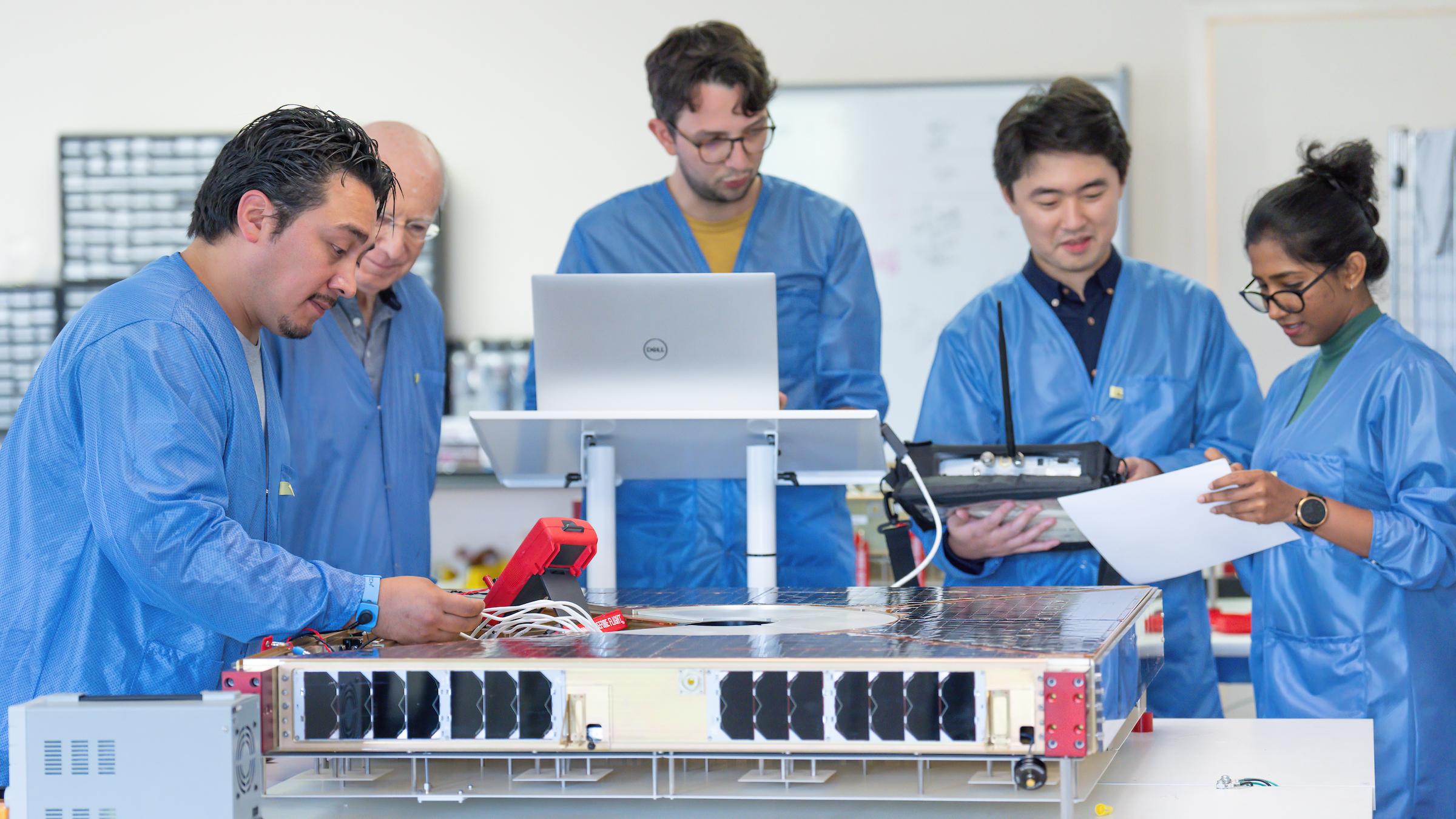TAMPA, Fla. — Small satellite operator Lynk Global has started initial direct-to-device services in a small part of the Cook Islands in its second commercial launch with a local telco.
Phones on mobile operator Vodafone Cook Islands’ network can now periodically send and receive text messages via Lynk’s satellites around Manuae, an uninhabited island in the Pacific Ocean popular with tourists.
Dan Dooley, Lynk’s chief commercial officer, said Aug. 9 that its service covers the stretch of water from Arutanga, the country’s most populated island, to Manuae where there is no terrestrial wireless infrastructure.
With just three satellites currently in low Earth orbit, initial services can only enable a handful of texts daily as the spacecraft pass over the region.
The startup plans to launch three more pizza box-shaped satellites this fall to improve its coverage and latency — and to be operating 50 of a proposed 5,000 satellites by the end of next year.
Lynk ultimately plans to cover the roughly 2,000,000 square kilometers of exclusive economic zone that comprise the Cook Islands, which has a population of around 15,000 people, providing backup services in case natural disasters knock out ground networks.
The Palau National Communications Corporation (PNCC), the largest telco in the Pacific island nation of Palau, became the first company in June to use Lynk’s satellites commercially.
Lynk has said as many as four texts have been sent from a single user during one satellite overpass in Palau.
More than 30 companies have signed agreements to use Lynk’s services, according to the Virginia-based venture, as it seeks to increase the density of its network and get regulatory approvals to expand globally.
